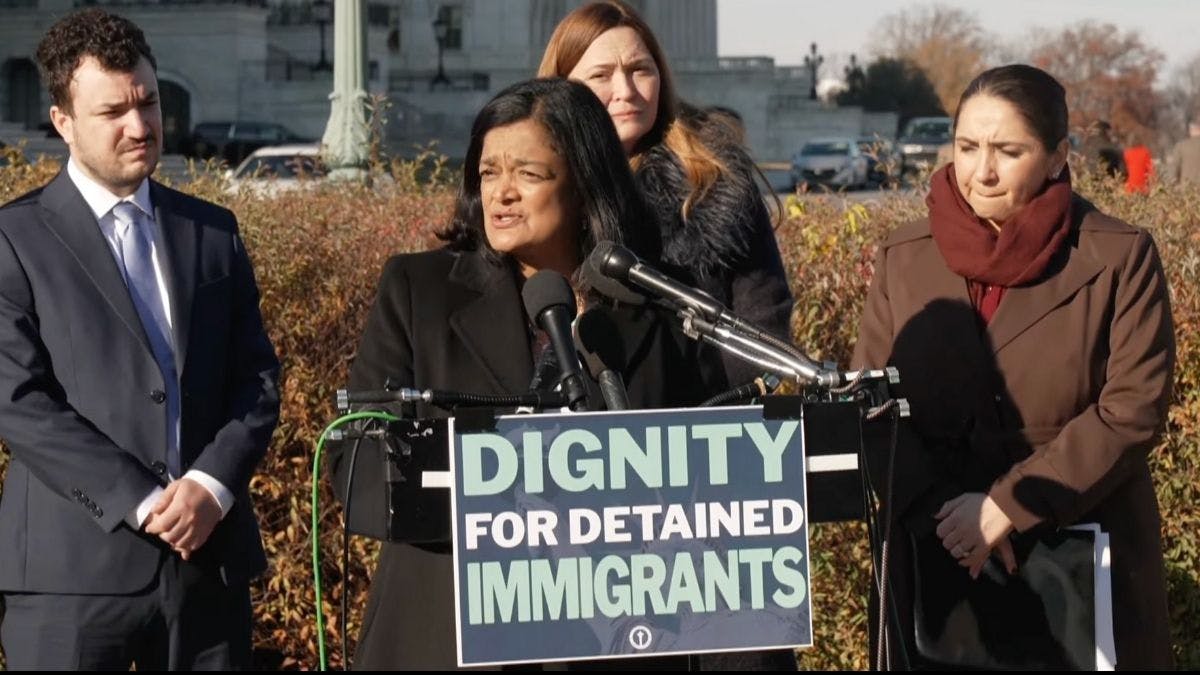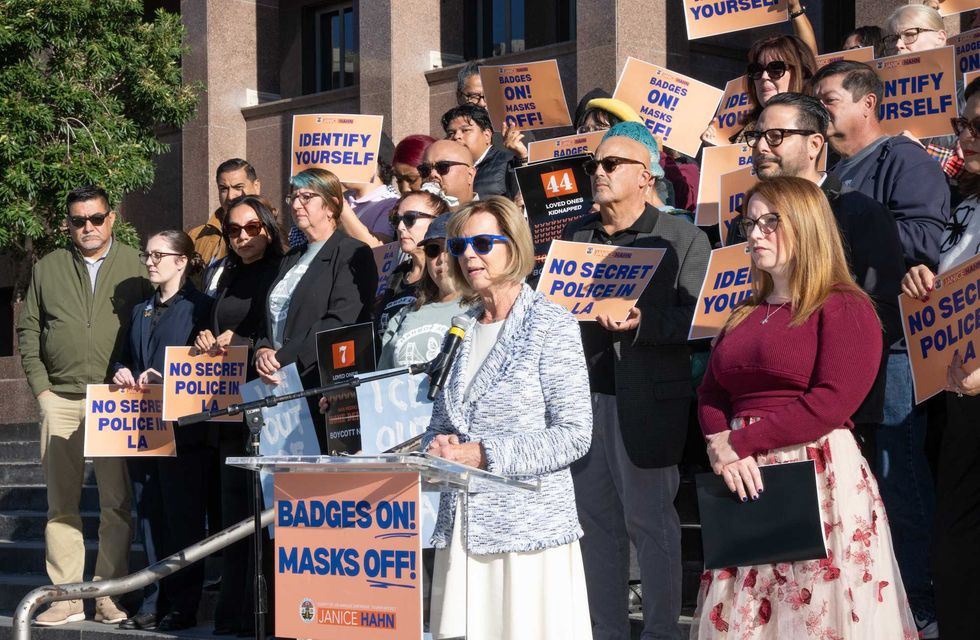A Christian case for America first


On June 15, Christian author Owen Strachan tweeted, “As an evangelical Christian, I stand with Israel without shame or apology.” This is, of course, an expression of support for the nation of Israel in its current conflict with Iran. Since Strachan tied his support of Israel to his identity as an “evangelical Christian,” he apparently sees a theological connection between Christianity and support for Israel (though he did not explain his reasoning here).
I quoted Strachan’s statement with my own tweet, which read, “As an American Christian, I stand with America.”
Christians should desire (and pray for) the good of all nations, especially their own. They should seek the good of their people.
I intended this statement to distance myself from support for Israel. But I did not mean that I support Iran. Rather, I meant that I do not desire to publicly stand for a foreign nation, and I do not want my home nation getting involved in unnecessary international conflicts.
I especially do not want Americans fighting in more wars.
As a Presbyterian minister, I affirm a doctrine known as the spirituality of the church. This means that the church’s mission is primarily spiritual. It follows that the church as an institution should not make political statements, except on occasions when the church is asked by the civil magistrate or when the church petitions the magistrate in extraordinary cases (see Westminster Confession of Faith 31.4).
I also seek to avoid preaching politics from the pulpit, unless by that we mean preaching Christian duties relating to the civil government. Though I am a minister (serving in the Presbyterian Church in America), I speak to this issue as a citizen and not from my office as a pastor.
However, my theological knowledge informs my opinion on this matter, and I hope it is helpful for guiding other Christians.
Israel and the Bible
There are two theological issues that arise from the question of support for the nation of Israel. The first is the relationship of Israel to the Bible.
Since I hold to Reformed theology, I understand the church to be “the Israel of God” (Galatians 6:16). It is not that the church replaced Israel, but that the church is the new Israel. Those who believe in Jesus Christ are the true spiritual sons of Abraham.
As the apostle Paul wrote, “If you are of Christ, then you are the seed of Abraham, heirs according to the promise” (Galatians 3:29, my translation). As such, Christians inherit all the promises made to Abraham in the Old Testament.
Jews who have rejected Christ have been cut off from the covenant with God, and Gentiles (non-Jews) who have believed in Christ have been “grafted in” to God’s “olive tree,” which is His covenant (Romans 11:17). There is debate even among Reformed Christians as to the future of the Jews (Romans 11:25-26).
Regardless, I believe the modern nation of Israel will bow before King Jesus as part of His inheriting all nations (Psalm 2:8).
Reformed theology differs from the popular “dispensationalist” theology, which affirms that there are two peoples of God and that the promises in the Old Testament are for ethnic Israel (a view most famous for the pre-tribulation rapture).
While there are many variations of dispensationalism today, all proponents see strong discontinuity between the Old and New Testaments and thus discontinuity between Old Testament Israel and the church. As such, they believe that many of the promises in the Old Testament, including the land promise (e.g., Genesis 15:18-21), continue for modern Jews.
This explains why dispensationalists often express widespread support for modern Israel.
On the contrary, Reformed theology understands the land promise to be spiritually fulfilled in Christ, who has dominion over all nations (Matthew 28:18-20). This is how Paul understood the land promise, as he spoke of “the promise to Abraham [and] to his seed that he would be heir of the world” (Romans 4:13, my translation).
All of that is to say that as a Christian, I have no special relationship to the modern nation-state of Israel. I do not wish Israelis harm but hope they become Christian, which is my hope and prayer for all nations. That is also my prayer for all of Israel’s enemies.
Christians and America
This raises a second theological issue arising from the question of support for Israel, which is how Christians should relate to their own country.
I see a lot of errors on this topic, exemplified by many comments on my tweet that basically communicated, “As a Christian, I stand with Christ and no earthly nation.” But I believe this is a completely unbiblical approach to the subject.
It is not that a Christian should endorse everything his or her nation’s government does. Of course not. But we should support our nation.
It is true, as Paul says, that as Christians “our citizenship is in heaven” (Philippians 3:20). But that is not our only citizenship. While believers are united to Christ, who reigns in heaven — and that is our destination upon death — we are still earthly citizens while we remain in the body. This is why Paul also commands us to “be subject” to our civil authorities (Romans 13:1; cf. 1 Peter 2:13).
God instituted civil government for our good. If a nation’s government is following God’s design, it will also protect the church and uphold righteousness in the nation. So Christians should have a healthy loyalty to their earthly nations, especially if that nation has a rich Christian history (as America does).
Ordo amoris applied
Christians are dual citizens, and their earthly citizenship is good. This is part of the Reformed doctrine of the two kingdoms. We must not over-spiritualize this world by rejecting the goodness of God’s creation, including nations.
Nations and civil government are good, although corrupted by sin.
Yet even though nations are corrupted, Christians should still support their earthly nations. Christians should desire (and pray for) the good of all nations, especially their own. They should seek the good of their people. As an American, this is why I support America first and foremost. My loyalty is not to Israel or Iran or any other foreign nation. My earthly loyalty is to the United States of America. And as long as that does not conflict with my ultimate loyalty to Jesus Christ, then I will support America.
This is part of the Christian tradition’s teaching on the ordo amoris, cited recently by Vice President JD Vance. There is an order of love that starts with one’s own family, and it prioritizes one’s nation before that of other nations. This is part of how Christians fulfill our Lord’s teaching to “love your neighbor” (Matthew 22:39).
America’s first and greatest president, George Washington, warned against entangling “alliances” in his 1796 farewell address. Yet too often America has been dragged into foreign wars because we did not listen to the father of our nation.
Our people pay taxes and die for the interests of other nations, including Israel.
I say no more. I wish Israel and Iran well, and I pray for peace between them. But I want what’s best for my people. And involvement in foreign wars is bad for my fellow Americans.
Editor's note: The title of this piece has been changed after publication.
Originally Published at Daily Wire, Daily Signal, or The Blaze
What's Your Reaction?
 Like
0
Like
0
 Dislike
0
Dislike
0
 Love
0
Love
0
 Funny
0
Funny
0
 Angry
0
Angry
0
 Sad
0
Sad
0
 Wow
0
Wow
0












































































